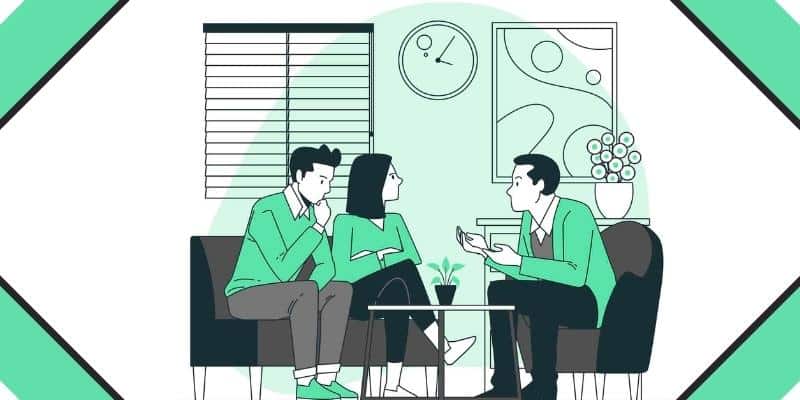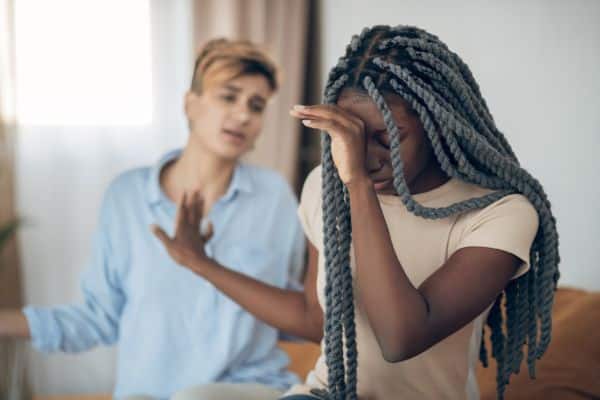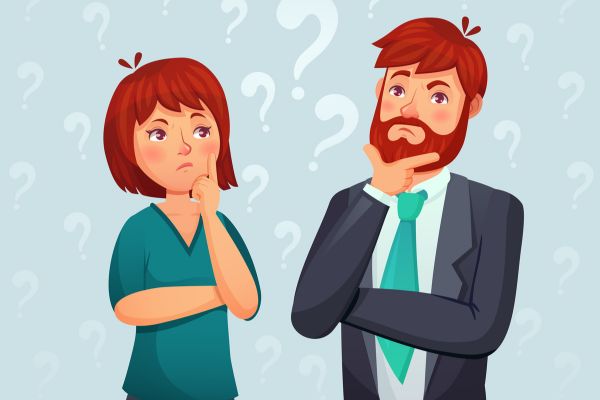“Compatibility doesn’t determine the fate of a marriage, how you deal with the incompatibilities, does.” ― Abhijit Naskar
What is Marriage Counselling?
Marriages may not be all rosy and rainbows. There can be many reasons for a marriage not working out well:
– There are moments in a relationship when you don’t feel like talking to your partner.
– Sometimes, you feel like walking out because you believe that you are not getting what you deserve
– Your needs are not met in this relationship.
– There are no conversations with your partner, your sex life has dwindled, and all you are doing is coping.
– There may be infidelity in this marriage.
– And many other reasons.
When you are going through a rough patch in your marriage and seek help from a professional and reliable psychotherapist or counsellor, then that’s what is called marriage counselling. If you are looking for marriage counselling in Singapore, these sessions are good because they help you open up… to your partner, get to the bottom of the problem and find the right path to solving your marital issues.
What are Benefits of Marriage Counselling Sessions
Marriage counselling sessions, also known as couples therapy, have many benefits for those who opt for the services.
1. It helps get to the root of the problem and find a way to tend to your relationship’s unique patterns and history.
2. It helps you manage your conflicts, arguments and disagreement by attending to the triggers.
3. Promotes good parenting by understanding the importance of how conflicts in a marriage can impact children.
4. Each partner gets an opportunity to table their views, opinions, beliefs and thoughts without judgement from the therapist.
5. Empowers the couple with communication skills to help them work on their marriage.
6. In case of infidelity, marriage counselling helps to rebuild broken trust.
7.Strengthens the bond between the two partners.
8. Marriage counselling helps to make choices – Stay in the marriage or separate. The therapist will not decide for the couples. Through discussions, decisions are taken by the partners.
Who Should Consider Attending Marriage Counselling?
Marriage counselling can help everyone in a relationship. It’s a myth that only when the marriage is on the verge of dissolving one must take therapy. I recommend taking therapy sessions when the seed of dissatisfaction is sown. When your beliefs and opinions have just started to clash, you realise that communication may not work well for both of you, it’s time to consider therapy.
Even if you do not have significant conflicts, couples therapy helps bring you closer and get rid of the problem before it catches up. However, below is a list of when therapy may be a necessity.
Constant Fights
When you are fraught with anxiety over constant fights, it’s time to look for a marriage counsellor. It will help you get to the bottom of the problem. Maybe you want different things, and each of you doesn’t see reason in their partner’s solution.
For instance, a husband may want the wife to quit their job and take care of the children while the wife feels their progress in her career shouldn’t be deterred by having a family. Marriage counselling helps to discuss different choices available for them.
You Feel You Are Incompatible
It gets to a point where you feel that you are not compatible with each other. Many differences are arising. These differences can have various reasons, just plain loss of interest or different family backgrounds that influence communication styles, beliefs, attitudes, and personalities.
Your marriage counsellor in a non-judgmental and safe environment helps to unfold the story from both partners. They help partners to notice from the other person’s perspectives. The counsellor, with attunement with both parties involved, addresses different issues and their triggers. They help in empowering the partners in marriage with different choices that they may not have considered earlier.
Research says a person’s early childhood trauma can impact relationships, including marriage. Sometimes in marriage counselling, exploring early childhood experiences may help resolve and heal and empower the relationship.
If you have such differences, you may need individual therapy sessions to be whole again to face a marriage, which means both of you will require to put more effort.
Unfaithfulness
Infidelity is a common cause of conflicts in a marriage. Cheating a spouse either by maintaining an emotional relationship or moving a step further and pursuing a sexual relationship breaks a commitment to marriage vows.
Infidelity or being unfaithful, especially in marriage, can lead to disruptions like divorce, children custody fights, mental disorders like depression, heightened anxiety, distrust, and so much more.
Marriage counselling can once again help gain awareness of the reasons for infidelity and let the partners or spouses choose to keep the marriage or decide to move their ways. If they decide to stay in the union, a counsellor helps with different strategies to empower their marriage or relationship.
Poor Communication Skills
Most of the problems in a marriage usually start with poor communication. Communication can be verbal or non-verbal. How many times in our marriage do we feel not heard, not essential or not significant? How many times our conversations end in anger, frustration, sadness, feeling numb, anxiety and other arrays of emotions? How many times poor communication lets us sink deeper in low moods, maybe trigger depression?
A marriage counsellor helps understand where your strengths lie in communication and where there is scope for making changes to build a stronger bond in marriage with your respective spouse. Communication is more than a verbal battle of words. It’s about understanding the emotional needs that each partner has in the relationship.
For example – Julie may need to be appreciated; however, John has not learnt to appreciate. A counsellor can guide John with different techniques to learn to appreciate and fulfil Julie’s needs. On the other hand, John’s need to have a non-judgmental ear to his opinion may not be provided by Julie.
Marriage counselling will help Julie to understand simple but different ways to be there for John.
What To Expect from Marriage Counselling?
During marriage counselling:
– Get an opportunity to air your views, beliefs and opinions in a safe and non-judgemental environment.
– Have a therapist who is not aligned with either of the partners. The therapist will give importance to both spouse’s viewpoints.
– Be heard. Your opinions will not be discounted.
– It takes two to tango. You will become aware that you are not the problem, or your partner is not the problem. Both of you as a relationship is the problem.
– Blaming each other may not solve the relationship.
– Learn the importance of communication in keeping your marriage alive.
– Learn the root cause of the fights and disagreements in your relationship.
– Learn to look at the issues from each person’s viewpoints and not discount the needs that each one has in the relationship.
– Become aware of each partner or spouse’s needs in the relationship or marriage.
– Learn the triggers of conflicts in the marriage.
– Work with each other. It is not about one partner doing all the work. Both will need to work.
Role of A Marriage Counsellor
A marriage counsellor listens to both parties and walks them through finding the solution to their problems. Their job entails:
A counsellor offers a safe space to the couples to ensure they can talk about issues in their mind without feeling judged.
To offer therapy as a collaborative effort between themselves and their couple clients.
To enrich the overall quality of the couples’ life beyond mere problem-solving.
The marriage counsellor doesn’t force their clients to take a specific action. Instead, they carefully listen to understand what’s going on.
Building a trusting relationship by being attuned to the needs of the partners. They guide them to create nourishing relationships.
Encouraging the couples to talk about and explore their feelings and behaviour;
Help partners identify their personal blocks to relate with each other at a deeper level and discover authentic and effective ways of connecting with their respective spouses.
Counsellors may also have an objective of helping couples look at their need for power, recognition and other needs. How can they accomplish these needs, how is these needs affecting their relationships and how they can get this need fulfilled without threatening the needs of others or sacrificing their own needs?
Identifying self-defeating patterns of behaviour to replace them with self-enhancing behaviours.
The therapist may offer a middle ground: Marriage counsellors are highly trained and therefore do not take sides. They ensure the space is safe for both to communicate their frustrations without any judgments.
Takeaway
Relationships can get hard at times, especially after living together for a long time. Issues that may lead to fights in a marriage include money, children, unemployment, drugs, cheating, culturally differences, phubbing, anger, infertility, poor communication, sex and even mental problems. Going for counselling may help you get to a stable place and even avoid going into a divorce. It’s also good to go for therapy before you are deep into the conflict.
















